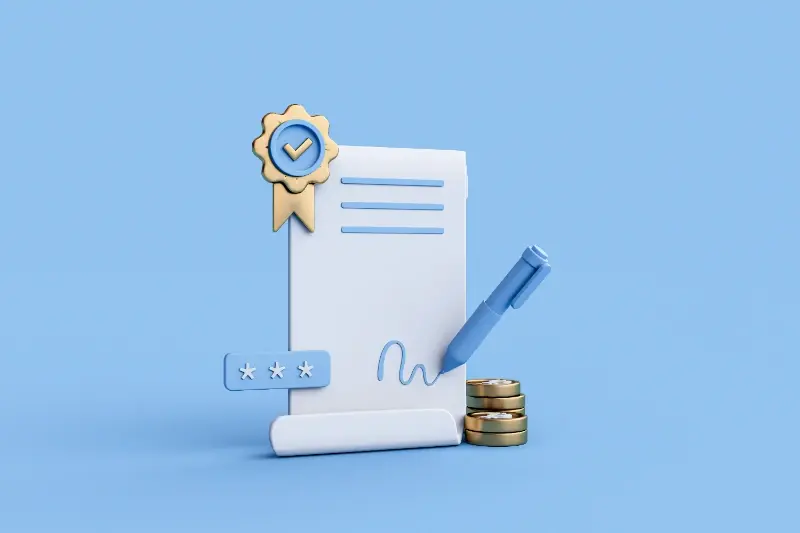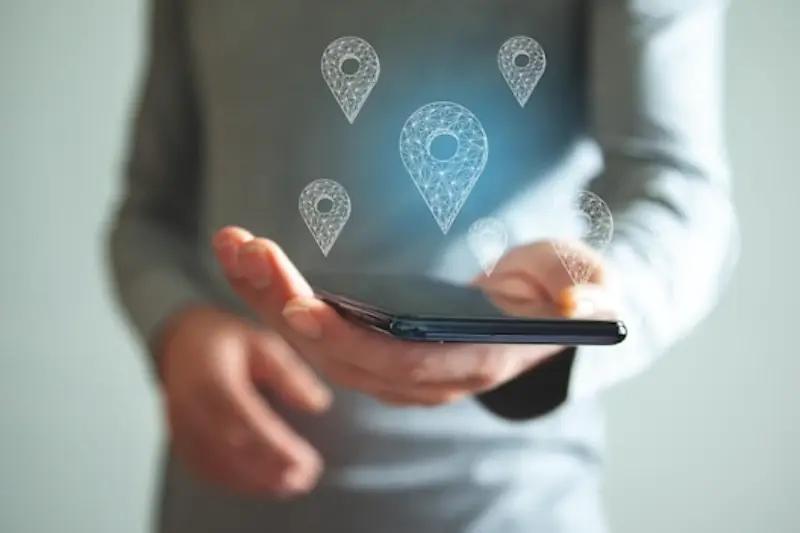A popular fitness app launches across Europe, collecting user workout data, location tracking, and health metrics. Within weeks, they receive a formal complaint from a data protection authority—users hadn't given proper consent for data processing under GDPR compliance apps regulations. Meanwhile, their iOS version gets rejected from the App Store for failing to include mandatory privacy labels. Two different gatekeepers, two different problems, but which one could actually shut down their business?
This scenario plays out more often than you might think in the mobile app development world. We've got GDPR on one side—the European Union's data protection regulation that can slap companies with fines reaching millions of pounds. On the other side, there are app store approval processes that control whether your app reaches users at all. Both create mobile app legal requirements that developers simply can't ignore.
The challenge isn't choosing between GDPR and app store compliance—it's understanding when each one becomes your biggest priority
Here's what makes this comparison tricky: GDPR focuses on data privacy regulation and user rights, whilst app stores care about user experience and platform standards. They overlap in some areas but diverge dramatically in others. Miss GDPR requirements and you face legal action; fail app store approval and your app never sees daylight. Both can kill your project, just in different ways. Understanding which process matters most depends entirely on your app's situation, target market, and business model—and that's exactly what we're going to explore.
Understanding GDPR Requirements for Mobile Apps
The General Data Protection Regulation isn't just some boring legal document that sits gathering dust—it's the rulebook that governs how we handle people's personal data across Europe. When you're building a mobile app, GDPR compliance becomes your responsibility the moment you collect, store, or process any personal information from users in the EU.
Personal data under GDPR covers much more than you might think. We're talking about names, email addresses, phone numbers, location data, device identifiers, IP addresses, and even behavioural patterns. If your app tracks how users navigate through screens or remembers their preferences, you're processing personal data.
Key GDPR Obligations for App Developers
- Obtain clear, informed consent before collecting any personal data
- Provide transparent privacy notices explaining what data you collect and why
- Allow users to access, correct, or delete their personal information
- Implement data protection by design and default
- Report data breaches within 72 hours
- Appoint a Data Protection Officer if required
The consent requirement is particularly tricky for mobile apps. Those pre-ticked boxes or buried consent clauses won't cut it anymore—users need to actively opt-in, and they must understand exactly what they're agreeing to. This means your privacy policy can't be written in legal jargon that nobody understands.
One thing that catches many developers off guard is the "right to be forgotten." Users can request complete deletion of their data, and you need systems in place to handle these requests properly. This includes any data you've shared with third-party services or analytics platforms.
Getting GDPR wrong isn't just embarrassing—fines can reach up to 4% of annual turnover or €20 million, whichever is higher. That's enough to sink most app businesses before they even get started.
App Store Approval Guidelines Explained
Getting your mobile app approved by the major app stores—Apple's App Store and Google Play—involves navigating a comprehensive review process that covers everything from functionality to content standards. Both platforms have their own specific requirements, but they share common ground when it comes to protecting users and maintaining quality standards.
Apple's App Store Review Guidelines are notoriously strict and detailed. They scrutinise apps for technical performance, user interface design, business models, and content appropriateness. The review team checks that your app works as advertised, doesn't crash, and provides genuine value to users. Google Play's policies are similarly thorough but tend to be slightly more flexible in their interpretation.
Core Areas of App Store Review
App store approval focuses on several key areas that directly impact user experience and platform integrity. Safety comes first—both stores want to protect users from malicious software, inappropriate content, and deceptive practices. They also evaluate whether your app follows platform-specific design guidelines and technical standards.
- App functionality and performance testing
- Content appropriateness and age ratings
- Metadata accuracy (descriptions, screenshots, keywords)
- In-app purchase implementation
- Privacy policy requirements
- Data collection and usage practices
The approval process typically takes anywhere from 24 hours to several days, depending on the complexity of your app and any issues that arise during review. Rejection doesn't mean game over—you can address the concerns and resubmit.
Always test your app thoroughly before submission and ensure your privacy policy clearly explains what data you collect and why. Most rejections happen because of crashes, missing information, or unclear data practices.
The Key Differences Between Both Processes
Right, let's get straight to the point—GDPR compliance and App Store approval are like two completely different beasts. I've watched countless developers get confused about which one they need to tackle first, and honestly, I can see why. They operate on entirely different timelines, have different goals, and frankly, they couldn't care less about each other's requirements.
GDPR is all about protecting user privacy and data rights. It's a legal framework that applies to your app regardless of where it's distributed—whether that's through the App Store, Google Play, or even if you're distributing it directly. The focus here is on consent, data processing, user rights, and transparency. You're dealing with legal compliance that can result in hefty fines if you get it wrong.
Timeline and Enforcement
App Store approval, on the other hand, is Apple's quality control system. They're checking if your app works properly, follows their design guidelines, doesn't contain inappropriate content, and won't break their ecosystem. It's a technical and content review process that determines whether your app gets listed for download.
Here's where it gets interesting—the timelines are completely different. GDPR compliance needs to be baked into your app from day one of development; it's not something you can bolt on later. App Store approval happens at the end, right before launch, and typically takes anywhere from 24 hours to a week.
Consequences of Non-Compliance
The consequences differ massively too. Fail GDPR compliance and you're looking at potential legal action and fines that can reach millions. Fail App Store approval and your app simply doesn't get published—no legal drama, just back to the drawing board.
When GDPR Takes Priority
Right, let's talk about when GDPR compliance apps should be your absolute top concern—before you even think about app store approval. This happens more often than you might expect, and getting it wrong can be costly.
If your mobile app legal requirements include handling personal data from EU users, GDPR isn't just a nice-to-have; it's mandatory. We're talking about apps that collect emails, store user preferences, track location data, or process payments. The penalties for non-compliance can reach up to 4% of your global annual turnover or €20 million, whichever is higher. That's not pocket change for most businesses!
When Data Privacy Regulation Must Come First
Here's the thing—you can't simply patch GDPR compliance onto an existing app and call it a day. Data privacy regulation needs to be built into your app's foundation from the start. This means designing your data collection processes, implementing proper consent mechanisms, and creating systems for data deletion requests before you write a single line of code.
GDPR compliance isn't a feature you can add later—it's the foundation your entire app must be built upon
App store approval can wait if you need to get your data handling right first. Apple and Google won't fine you for being late, but regulators will fine you for being non-compliant. If your app processes sensitive personal data—health information, financial details, or children's data—GDPR takes absolute priority. You simply cannot launch without proper compliance measures in place, regardless of how eager you are to get your app live on the stores.
When App Store Approval Matters Most
There are times when getting your app approved by Apple or Google becomes your absolute priority—and GDPR compliance, whilst still important, takes a back seat. This happens most often when you're working with tight launch deadlines or when your business model depends entirely on app store visibility.
Revenue-Critical Launches
If you're launching an app that needs to generate revenue quickly—perhaps you're a startup with limited funding or you're releasing a seasonal app—then app store approval becomes your main focus. Without approval, you simply can't sell anything. I've worked with companies who've had to make this difficult choice, and it's not pleasant, but sometimes business survival comes first.
The same applies to apps that rely on in-app purchases or subscriptions. These revenue streams only work if you're actually in the store. You can have the most GDPR-compliant app in the world, but if Apple or Google reject it, you're earning nothing.
Time-Sensitive Opportunities
Some apps are built to capitalise on specific events or trends. Think sports apps before a major tournament, or apps tied to cultural moments. Miss your window, and the opportunity disappears entirely. In these cases, getting store approval fast matters more than having perfect privacy policies—though you'll need to address GDPR compliance soon after launch.
Marketing campaigns also create these situations. If you've booked advertising, arranged PR, or coordinated with influencers, then your launch date isn't flexible. App store approval becomes the bottleneck that could derail everything, making it your top priority.
Conclusion
After eight years of building apps and watching developers struggle with these two approval processes, I can tell you that both GDPR compliance and app store approval are non-negotiable parts of modern app development. You can't pick one over the other—they work together like two sides of the same coin.
GDPR compliance protects your users and keeps you on the right side of the law; app store approval gets your app in front of millions of potential users. Skip either one and you're looking at serious problems down the line. Legal trouble, rejected apps, unhappy users, or worse—an app that never sees the light of day.
The smart approach is to build both requirements into your development process from day one. Don't treat them as afterthoughts or hurdles to jump over at the last minute. When you're planning your app's features, think about data collection. When you're designing user interfaces, consider consent flows. When you're writing your privacy policy, make sure it covers both GDPR requirements and app store guidelines.
Most successful apps we've worked with handle this by creating a compliance checklist early in the project. They map out what data they need, why they need it, and how they'll protect it. Then they design their app experience around these requirements rather than trying to squeeze compliance in later.
The bottom line? Both processes matter equally, but for different reasons. GDPR keeps you legal and builds trust with users—app store approval gets your product to market. Master both, and you're setting your app up for long-term success.
Share this
Subscribe To Our Blog
You May Also Like
These Related Stories

App Store Approval: Getting Your Licensing Documentation Right

Location Privacy Laws Every App Developer Must Know Before Launch





